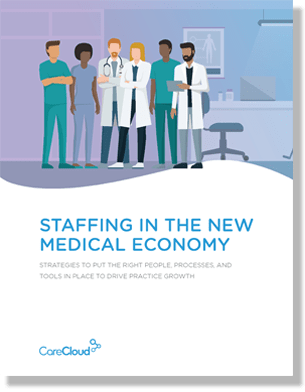A Federally Qualified Health Center (FQHC) strives to help meet the needs of an underserved area or population. The FQHC provides primary outpatient services and opportunities for employment for the community, often while working to meet community initiatives. These services target health disparities and work to empower underserved areas with high-quality patient care.
An FQHC qualifies for enhanced reimbursement from The Health Resources and Services Administration (HRSA) beyond Medicare and Medicaid benefits. As a nonprofit and tax-exempt organization, an FQHC can receive grants from the government, the private sector, and donations in addition to Medicare and Medicaid funding. Any patient care center can apply to become an FQHC if the health center meets specific requirements to receive funds from HRSA.
FQHC Requirements
HRSA supports distributing providers to areas of need and providing funding to FQHC to treat geographically isolated, economically or medically vulnerable populations. To qualify as an FQHC, specific requirements must be met which include:
- Serve an underserved area or population
- Provide care on a sliding fee scale based on ability to pay
- Operate under a governing board of directors that includes patients
- Complete annual reporting requirements
- Provide holistic health and social services
- Have an ongoing quality assurance program
- Not be concurrently approved as a rural health clinic
The term “health centers” is sometimes used to encompass FQHC “look-alikes” and those who receive grants from the Health Center Program. Certain tribal organizations and FQHC “look-alikes” are organizations that meet the section of the Public Health Service (PHS) Act that defines funding opportunities for FQHC but may be required to meet different rules. Look-alikes may qualify for funding under the FQHC payment methodologies of Medicare and Medicaid and may receive additional benefits, but do not receive Health Center Program funding. They were established to increase access to medically underserved populations.
FQHC Services
An FQHC is paid on the FQHC Prospective Payment System (PPS) for medically necessary primary health services and preventive health care. They provide comprehensive services with a team-based approach to provide holistic patient care. Services are typically provided on site in an outpatient clinic and can include preventative health care, dental, mental health and substance abuse treatment. If services are not available on site, they must have a connection to coordinate care with another provider. These may be for needs such as transportation services for patient care, and specialty care, or visiting nursing services for homebound patients in an area where there is a shortage of home health agencies. A few examples of FQHC include:
- Community Health Centers
- Migrant Health Centers
- Health Care for the Homeless Health Centers
- Health Centers for Residents of Public Housing
- Health Center program “look-alikes”
- Outpatient health programs or facilities offered by a tribal organization
The provision of FQHC services cannot occur in an inpatient or outpatient hospital or a facility that precludes FQHC visits.
Serving the Underserved
An FQHC strives to ensure underserved populations and areas are receiving holistic healthcare by working to address social determinants of health. The Affordable Care Act (ACA) has resulted in more patients being insured in the populations that many FQHC serve. This has enabled many Federally Qualified Health Centers (FQHC) to grow.
DUMMYTEXT
Sources:
- Community Health Centers and Rural Health Clinics
- Federally Qualified Health Centers (FQHCs)- Rural Health Information Hub
- FQHC Fact Sheet
- Health Center Program Look-Alikes
- What is an FQHC?
Bio:
Maureen Bonatch MSN, BSN, RN draws from years of experience in nursing administration, leadership and psychiatric nursing to write healthcare content. Her work has appeared on numerous health system websites and healthcare journals. Her experience as a fiction author helps her craft engaging and creative content. Learn more about her freelance writing at CharmedType.com and her fiction books at MaureenBonatch.com




